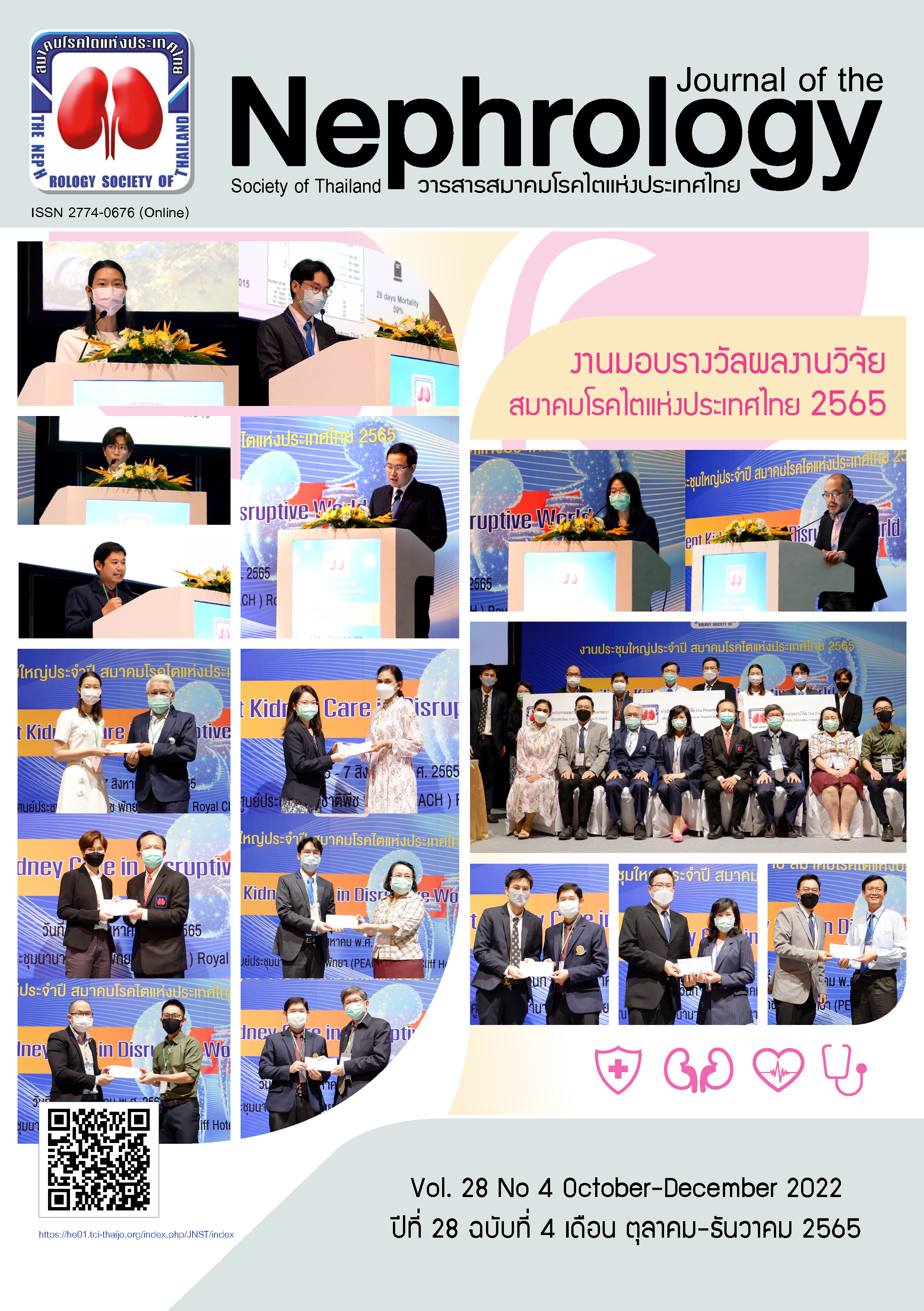Effect of Integrated Care Model on Blood Pressure Reduction in Hypertensive Patients Living in Rural Community: A Randomized Control Trial
Main Article Content
Abstract
Background: Hypertension is a major health challenge causing cardiovascular and chronic kidney diseases. We designed an integrated model and aimed to identify it’s effectiveness for better management of hypertension.
Methods: A randomized control trial was conducted in all 26 districts of the Khon Kaen province from January to June 2019. Participants aged ≥ 35 years who had systolic blood pressure of > 120 mmHg were enrolled by a simple random sampling method to the control and the intervention groups in a ratio of 1:2. Demographics and personal health data, salt intake and knowledge were recorded. Blood pressure (BP), 24 hours urine volume were measured and serum creatinine, alanine aminotransferase, complete blood count and urine albumin/creatinine ratio were performed. The integrated care model for the intervention group composes of a team of academic researchers, nurses, nutritionists, doctors, pharmacists and physical therapists empowered the participants on health behaviors with the cooperation of village health volunteers. Manuals containing information of diet, salt intake and appropriate health behavior and also salt meter use were provided to intervention group for 6 months after which the BP were
re-assessed and compared in both groups at month 1, 3 and 6. Results: A total of 1,835 participants, 597 in control and 1,238 in intervention group, were enrolled with the mean age of 56.8±9.6 years and 69.1% were female. The baseline BP were 132/81 and 134/80 mmHg in the control and intervention group respectively. Comparison of systolic BP levels between both groups, a mean of the intervention group was a less trend in month 1 and significantly lesser in month 3 (129.0±12.8 vs. 130.9±12.2, p =0.004). The intervention group also demonstrated a significant weight reduction (-1.06 vs. -0.29%), increase of daily urine volume (1,904 vs. 1,767 ml) and exercise (86.9 vs. 82.7%). Furthermore, the participants in the intervention group better enhanced their knowledge, more confidence and change their health behaviors.
Conclusions: Our community-based integrated care model was additionally effective in blood pressure control and
improved the health literacy.
Article Details

This work is licensed under a Creative Commons Attribution-NonCommercial-NoDerivatives 4.0 International License.
This article is published under CC BY-NC-ND 4.0 license, which allows for non-commercial reuse of the published paper as long as the published paper is fully attributed. Anyone can share (copy and redistribute) the material in any medium or format without having to ask permission from the author or the Nephrology Society of Thailand.
References
N/A


